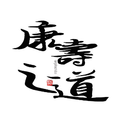 In Traditional Chinese Medicine (TCM), it is said that all diseases arise from Qi. Therefore, only by resolving the issue of Liver Qi stagnation can women reduce their illnesses or even avoid them altogether.
In Traditional Chinese Medicine (TCM), it is said that all diseases arise from Qi. Therefore, only by resolving the issue of Liver Qi stagnation can women reduce their illnesses or even avoid them altogether. How to Determine Liver Qi Stagnation1.Causes of Liver Qi StagnationThere are several common causes that lead to Liver Qi stagnation:Family disharmony: Frequent arguments between spouses or tense relationships with in-laws can lead to discomfort in Liver Qi.Social pressure: For instance, older unmarried women often face pressure from parents, relatives, and colleagues regarding marriage, compounded by societal criticism of their situation, which can create significant stress and lead to Liver Qi stagnation.Work pressure: In modern workplaces, there is no gender preference; women face unprecedented stress, especially white-collar workers who are torn between family and career, leading to widespread Liver Qi stagnation.Poor self-regulation: Many women struggle to cope with issues, tend to dwell on negative aspects of life and work, and cannot self-soothe, which often results in Liver Qi stagnation.2.Symptoms of Liver Qi StagnationOne manifestation is Qi stagnation, which means that Qi is blocked within the body, leading to feelings of depression and oppression, commonly described as feeling “stifled,” “sulking,” or “having a heavy heart.” This is a typical sign of Liver Qi stagnation. Prolonged stagnation can generate heat, leading to excessive Liver fire, irritability, and a short temper. Some individuals may sigh frequently and feel unhappy, risking serious health issues; others may become impulsive and easily angered, causing distress to themselves and others.Many women report that they are aware of their poor health and wish to take blood-nourishing supplements, but they often develop mouth ulcers or have trouble sleeping after taking them, tossing and turning restlessly. Some believe this is due to “deficiency not receiving nourishment,” but these issues are often caused by Liver fire; if the Liver fire is blocked, how can nourishment be absorbed?The dangers of Liver Qi stagnation are significant and beyond imagination; it can lead to blood stasis, weak temper, dampness accumulation, and even Yin deficiency with Yang excess… In short, the “crimes” of Liver Qi stagnation are numerous.Currently, many people suffer from Liver Qi stagnation, especially women who juggle family responsibilities and careers, raising and educating children while also caring for elderly parents, making it difficult to avoid Liver Qi stagnation.
How to Determine Liver Qi Stagnation1.Causes of Liver Qi StagnationThere are several common causes that lead to Liver Qi stagnation:Family disharmony: Frequent arguments between spouses or tense relationships with in-laws can lead to discomfort in Liver Qi.Social pressure: For instance, older unmarried women often face pressure from parents, relatives, and colleagues regarding marriage, compounded by societal criticism of their situation, which can create significant stress and lead to Liver Qi stagnation.Work pressure: In modern workplaces, there is no gender preference; women face unprecedented stress, especially white-collar workers who are torn between family and career, leading to widespread Liver Qi stagnation.Poor self-regulation: Many women struggle to cope with issues, tend to dwell on negative aspects of life and work, and cannot self-soothe, which often results in Liver Qi stagnation.2.Symptoms of Liver Qi StagnationOne manifestation is Qi stagnation, which means that Qi is blocked within the body, leading to feelings of depression and oppression, commonly described as feeling “stifled,” “sulking,” or “having a heavy heart.” This is a typical sign of Liver Qi stagnation. Prolonged stagnation can generate heat, leading to excessive Liver fire, irritability, and a short temper. Some individuals may sigh frequently and feel unhappy, risking serious health issues; others may become impulsive and easily angered, causing distress to themselves and others.Many women report that they are aware of their poor health and wish to take blood-nourishing supplements, but they often develop mouth ulcers or have trouble sleeping after taking them, tossing and turning restlessly. Some believe this is due to “deficiency not receiving nourishment,” but these issues are often caused by Liver fire; if the Liver fire is blocked, how can nourishment be absorbed?The dangers of Liver Qi stagnation are significant and beyond imagination; it can lead to blood stasis, weak temper, dampness accumulation, and even Yin deficiency with Yang excess… In short, the “crimes” of Liver Qi stagnation are numerous.Currently, many people suffer from Liver Qi stagnation, especially women who juggle family responsibilities and careers, raising and educating children while also caring for elderly parents, making it difficult to avoid Liver Qi stagnation. How to Determine if You Have Liver Qi StagnationTo solve a case, evidence is essential, and self-diagnosis is no different. The most critical evidence for Liver Qi stagnation can be found on the tongue. Generally, a person’s tongue is oval-shaped, while someone with Liver Qi stagnation will have a pointed tongue, with the tip and sides appearing red—this is a key clue for Liver Qi stagnation.Of course, to confirm Liver Qi stagnation, you will need the following “evidence”:Bitter mouth: Many women feel a bitter taste in their mouth, especially upon waking.Dry throat: A sensation of dryness in the mouth and throat, as if there is no saliva, although some may observe saliva on the tongue.Feeling of obstruction in the throat: A sensation of something stuck in the throat, like a bayberry pit, which cannot be coughed up or swallowed, known as “plum pit Qi.”Dizziness: Some women frequently experience dizziness, either all day or in sudden episodes, and some may also have headaches.Poor appetite: “Liver wood counteracting spleen earth” means that Liver Qi stagnation can lead to various spleen and stomach issues, such as lack of appetite, bloating, and stomach pain.Body temperature fluctuations: Feeling hot when dressed and cold when undressed, complaining of heat in a warm room but feeling cold outside.Irritability: Individuals with Liver Qi stagnation often feel irritable and are prone to anger and sulking.Nausea: Due to “Liver wood counteracting spleen earth,” leading to upward stomach Qi, causing feelings of gas, belching, acid reflux, or even vomiting.Chest tightness: A feeling of tightness in the chest, even diagnosed with heart issues. In fact, individuals with heart problems should first address Liver Qi stagnation if their tongue is pointed, as this can help resolve heart issues.Rib pain: A persistent feeling of pain or fullness in the ribs.Insomnia and vivid dreams: Insomnia can stem from two main causes: blood deficiency or Liver Qi stagnation. Frequent dreaming is also a sign of Liver Qi stagnation; such individuals often dream continuously upon falling asleep.Low mood: Sighing, feeling melancholic, and being overly sensitive.Cold hands and feet: Many know that cold extremities can result from Yang deficiency, blood deficiency, or blood stasis, but few recognize that cold hands and feet caused by Liver Qi stagnation can also occur. If cold hands and feet coincide with the above symptoms, consider the possibility of Liver Qi stagnation.All of the above are criteria for diagnosing Liver Qi stagnation. If at least one or two symptoms match, and the tongue is pointed, it can generally be concluded that there is Liver Qi stagnation.In fact, even without examining these symptoms, women can have a sense of their condition. They know whether their mood is pleasant, if they have encountered distressing events, if they have been upset by someone, if they feel pent-up frustration, or if they are under significant work pressure… These matters are clearer to them than anyone else, so the true diagnostic standard for Liver Qi stagnation lies within themselves.
How to Determine if You Have Liver Qi StagnationTo solve a case, evidence is essential, and self-diagnosis is no different. The most critical evidence for Liver Qi stagnation can be found on the tongue. Generally, a person’s tongue is oval-shaped, while someone with Liver Qi stagnation will have a pointed tongue, with the tip and sides appearing red—this is a key clue for Liver Qi stagnation.Of course, to confirm Liver Qi stagnation, you will need the following “evidence”:Bitter mouth: Many women feel a bitter taste in their mouth, especially upon waking.Dry throat: A sensation of dryness in the mouth and throat, as if there is no saliva, although some may observe saliva on the tongue.Feeling of obstruction in the throat: A sensation of something stuck in the throat, like a bayberry pit, which cannot be coughed up or swallowed, known as “plum pit Qi.”Dizziness: Some women frequently experience dizziness, either all day or in sudden episodes, and some may also have headaches.Poor appetite: “Liver wood counteracting spleen earth” means that Liver Qi stagnation can lead to various spleen and stomach issues, such as lack of appetite, bloating, and stomach pain.Body temperature fluctuations: Feeling hot when dressed and cold when undressed, complaining of heat in a warm room but feeling cold outside.Irritability: Individuals with Liver Qi stagnation often feel irritable and are prone to anger and sulking.Nausea: Due to “Liver wood counteracting spleen earth,” leading to upward stomach Qi, causing feelings of gas, belching, acid reflux, or even vomiting.Chest tightness: A feeling of tightness in the chest, even diagnosed with heart issues. In fact, individuals with heart problems should first address Liver Qi stagnation if their tongue is pointed, as this can help resolve heart issues.Rib pain: A persistent feeling of pain or fullness in the ribs.Insomnia and vivid dreams: Insomnia can stem from two main causes: blood deficiency or Liver Qi stagnation. Frequent dreaming is also a sign of Liver Qi stagnation; such individuals often dream continuously upon falling asleep.Low mood: Sighing, feeling melancholic, and being overly sensitive.Cold hands and feet: Many know that cold extremities can result from Yang deficiency, blood deficiency, or blood stasis, but few recognize that cold hands and feet caused by Liver Qi stagnation can also occur. If cold hands and feet coincide with the above symptoms, consider the possibility of Liver Qi stagnation.All of the above are criteria for diagnosing Liver Qi stagnation. If at least one or two symptoms match, and the tongue is pointed, it can generally be concluded that there is Liver Qi stagnation.In fact, even without examining these symptoms, women can have a sense of their condition. They know whether their mood is pleasant, if they have encountered distressing events, if they have been upset by someone, if they feel pent-up frustration, or if they are under significant work pressure… These matters are clearer to them than anyone else, so the true diagnostic standard for Liver Qi stagnation lies within themselves.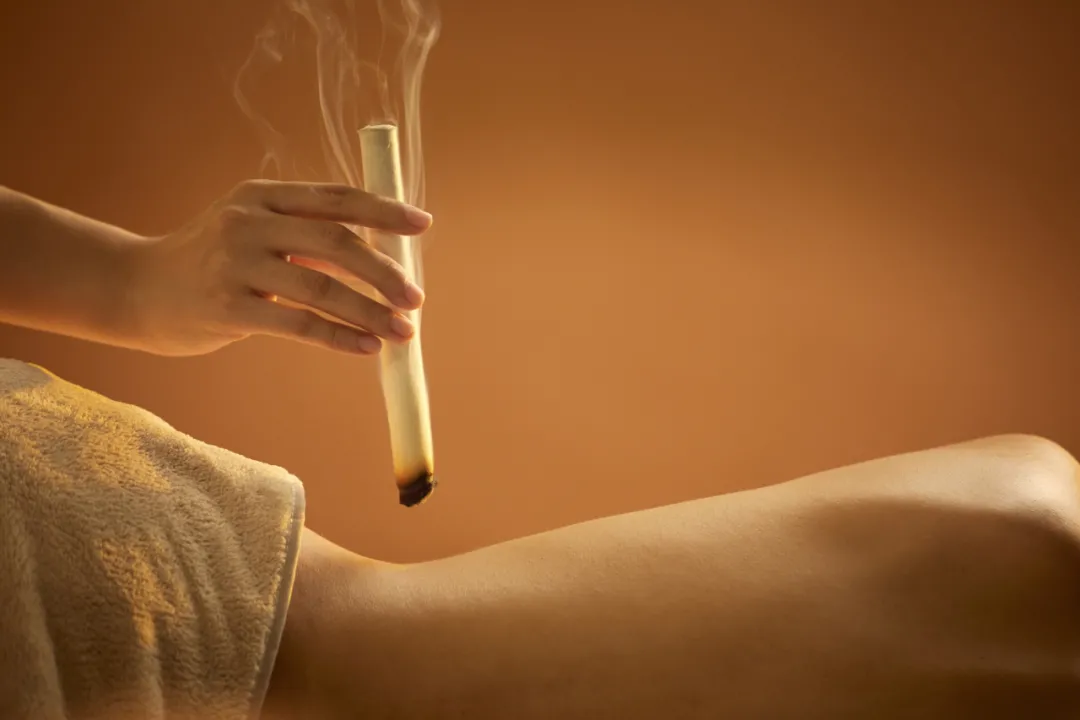 Cupping and Moxibustion for Liver Qi StagnationTo regulate Liver Qi stagnation, moxibustion combined with cupping is highly effective. The specific acupoints for moxibustion and cupping are as follows:
Cupping and Moxibustion for Liver Qi StagnationTo regulate Liver Qi stagnation, moxibustion combined with cupping is highly effective. The specific acupoints for moxibustion and cupping are as follows: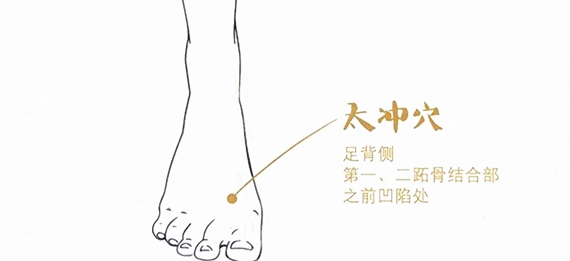 1.Taichong (Liver 3) PointThe Taichong point is located on the foot Jueyin Liver meridian, on the dorsum of the foot, in the depression before the junction of the metatarsal bones. Cupping followed by moxibustion at this point can help regulate Qi, soothe the Liver, invigorate blood circulation, and promote the smooth flow of Qi and blood.
1.Taichong (Liver 3) PointThe Taichong point is located on the foot Jueyin Liver meridian, on the dorsum of the foot, in the depression before the junction of the metatarsal bones. Cupping followed by moxibustion at this point can help regulate Qi, soothe the Liver, invigorate blood circulation, and promote the smooth flow of Qi and blood.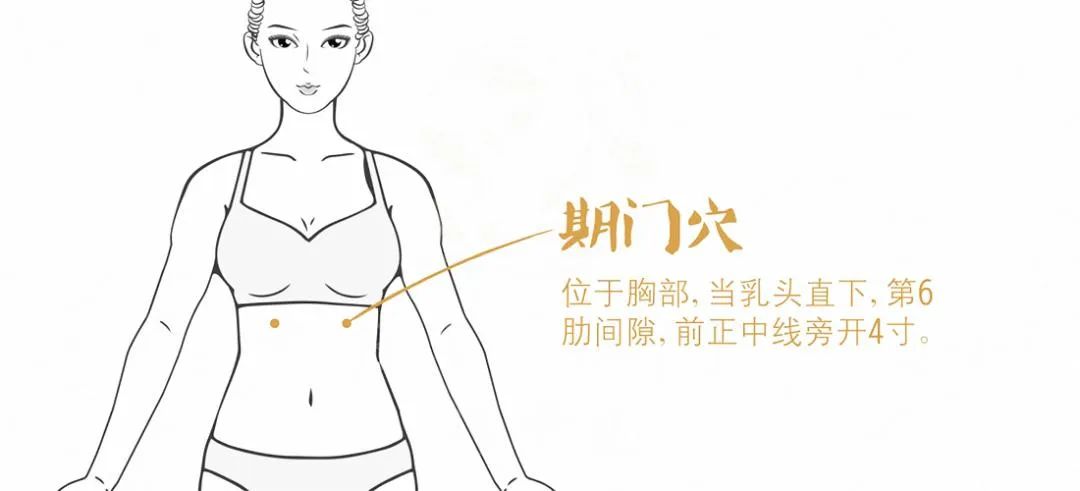 2.Qimen (Liver 14) PointThe Qimen point is the mu point of the foot Jueyin Liver meridian, located in the sixth intercostal space, four cun lateral to the anterior midline (directly below the nipple). Moxibustion at this point can soothe the Liver and strengthen the Spleen, regulate Qi, and invigorate blood circulation. Cupping can also be performed in conjunction with the Gan Shu (Liver Back Shu) and Ge Shu (Diaphragm Back Shu) points to help soothe the Liver, invigorate blood, and resolve stasis, primarily treating chest and rib pain. Rubbing the sides of the ribs with both hands can also help soothe the Liver and relieve stagnation.
2.Qimen (Liver 14) PointThe Qimen point is the mu point of the foot Jueyin Liver meridian, located in the sixth intercostal space, four cun lateral to the anterior midline (directly below the nipple). Moxibustion at this point can soothe the Liver and strengthen the Spleen, regulate Qi, and invigorate blood circulation. Cupping can also be performed in conjunction with the Gan Shu (Liver Back Shu) and Ge Shu (Diaphragm Back Shu) points to help soothe the Liver, invigorate blood, and resolve stasis, primarily treating chest and rib pain. Rubbing the sides of the ribs with both hands can also help soothe the Liver and relieve stagnation.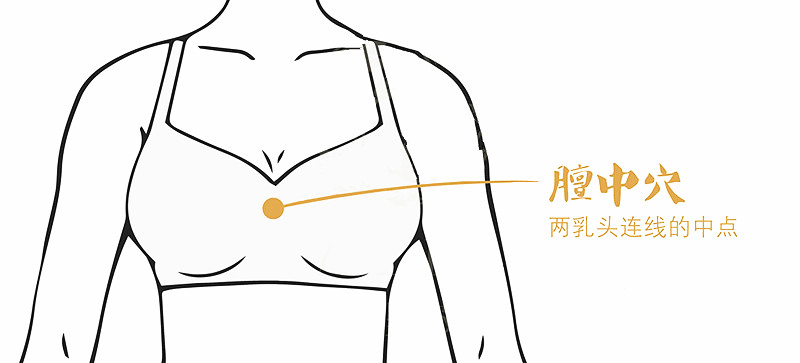 3.Shanzhong (Ren 17) PointThis point is located at the level of the fourth intercostal space, on the midline (between the two nipples). Cupping at this point can invigorate blood circulation, open the chest, regulate Qi, and alleviate cough and asthma. Even massaging this point can yield good results, relieving symptoms such as chest tightness, cough, and vomiting. When cupping at the above points, if there is no significant discomfort, leave the cups on for 5-10 minutes.Generally, a course of treatment consists of 10 sessions, with cupping performed every 5 days, while moxibustion can be done every other day. The color of the cupping marks reflects each person’s constitution and health status:Purple-black marks indicate blood stasis within the body;Dark red marks indicate stasis heat and more severe conditions;Pale and slightly swollen marks with moisture on the cup’s inner wall indicate Spleen Yang deficiency leading to Yang deficiency and water retention;Marks with prominent surface patterns, enlarged pores, and slight itching indicate wind and dampness invasion.During cupping, one may feel localized tightness, coolness, or swelling; if there is no significant discomfort, the cupping marks will naturally fade within 3 to 5 days without special treatment.
3.Shanzhong (Ren 17) PointThis point is located at the level of the fourth intercostal space, on the midline (between the two nipples). Cupping at this point can invigorate blood circulation, open the chest, regulate Qi, and alleviate cough and asthma. Even massaging this point can yield good results, relieving symptoms such as chest tightness, cough, and vomiting. When cupping at the above points, if there is no significant discomfort, leave the cups on for 5-10 minutes.Generally, a course of treatment consists of 10 sessions, with cupping performed every 5 days, while moxibustion can be done every other day. The color of the cupping marks reflects each person’s constitution and health status:Purple-black marks indicate blood stasis within the body;Dark red marks indicate stasis heat and more severe conditions;Pale and slightly swollen marks with moisture on the cup’s inner wall indicate Spleen Yang deficiency leading to Yang deficiency and water retention;Marks with prominent surface patterns, enlarged pores, and slight itching indicate wind and dampness invasion.During cupping, one may feel localized tightness, coolness, or swelling; if there is no significant discomfort, the cupping marks will naturally fade within 3 to 5 days without special treatment.
-END-
The Journey of Cultivation has received enthusiastic responses from students since the launch of the “Core Secret Techniques of the Taishang Law School’s Internal Evidence Center” and has provided a clear understanding of the levels of internal evidence, which is the cultivation level of becoming an immortal or Buddha, as well as specific methods for entering internal evidence. In response to the enthusiastic requests from students and to promote practical cultivation of internal evidence, we are launching the “Taishang Law School’s Longevity Secret Techniques Internal Evidence Practical Training Camp” to recreate the legendary path of the Dao.
An ancient and unique health-preserving technique that can replenish Yang Qi, balance Yin and Yang, and eliminate various diseases—Yijinjing (Muscle-Tendon Change Classic).
For conditions caused by sub-health or chronic diseases leading to Qi deficiency, blood deficiency, Yin deficiency, and Yang deficiency, complete or effective elimination can be achieved within 7-21 days, with many experiencing physiological effects.Click to learn more→ Is it merely about preventing diseases? What benefits does the “Yijinjing” bring to our bodies?
Latest Recommendations
The “Core Diagram of the Taishang Law School’s Internal Evidence Center—Longevity Secret Techniques” is an ancient cultivation secret. Whether for disease elimination and longevity or for practitioners of alchemical cultivation seeking to break through bottlenecks, it is absolutely worth your study. Click to learn more→ Understanding this diagram will help you avoid detours on the path of cultivation and assist you in entering the Golden Elixir path ahead of time.
Recommended Courses:
Following the “Taishang Fetal Breathing Secret Method” and “Secrets of the Immortal Family’s Untransmitted True Fire,” Master Sanfeng is once again sharing the sister course of the Taishang Law School series, “Dream Cultivation—Great Dream Divine Power” course, connecting with practitioners worldwide!

Submission Email: [email protected]

Journey of Cultivation⊙Xinyue
Practice Exchange
Please add Xinyue’s private WeChat

